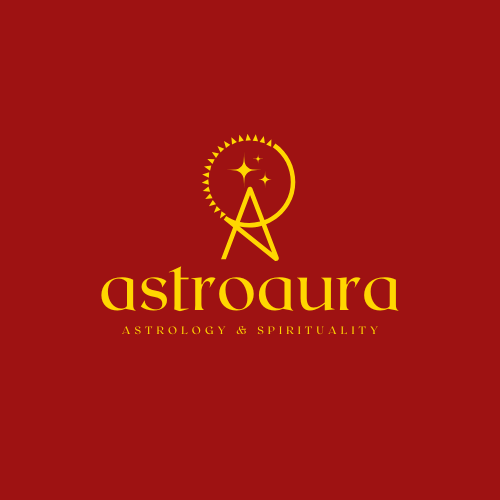The Significance of Medical Astrology: Understanding Its Role in Physical Well-Being
Rahul Kumar Singh
6/23/2025


Introduction to Medical Astrology
Medical astrology is a branch of astrology that focuses on the relationship between celestial bodies and human health. It explores how the positions of the planets, the moon, and other celestial entities can influence physical conditions and overall well-being. The roots of medical astrology can be traced back to ancient civilizations, where practitioners believed that the cosmos could impact not just the fate of individuals but their health as well. This ancient discipline emerged from the intersection of astrology, medicine, and philosophy, forming a unique methodology that continues to evolve today.
The historical significance of medical astrology is profound, as it was once an integral part of medical education in various cultures, especially during the Hellenistic period. Ancient physicians such as Hippocrates and Galen acknowledged the importance of celestial signs and planetary movements when diagnosing and treating illnesses. This historical context demonstrates how intertwined astrology and medicine were in antiquity, highlighting a time when understanding human health incorporated astrological principles as a standard practice.
One of the fundamental principles of medical astrology is the notion that each zodiac sign corresponds with specific body parts and health conditions. For instance, Aries is often associated with the head, while Taurus is connected to the throat and cervical region. Additionally, different astrological houses reflect various aspects of health and illness, further emphasizing the intricate relationship between celestial arrangements and the human body. Medical astrologers analyze an individual's birth chart, which reveals insights into their predisposition to certain medical issues, nutritional needs, and even psychological profiles based on astrological influences.
As the discipline of medical astrology gains renewed interest in contemporary wellness discussions, it presents a holistic approach to health. By recognizing the potential impact of astrological factors on physical well-being, individuals may adopt more personalized health strategies that align with their celestial blueprint. This integration of traditional astrology into modern health paradigms signifies its ongoing relevance and adaptability in understanding human health.
The Connection Between Astrology and Health
The relationship between astrology and health is a topic of considerable interest within both the astrological community and among holistic health professionals. Astrological signs and their corresponding planetary influences are believed to hold significant insights into an individual's physical well-being. Each zodiac sign represents distinct traits, and these traits can manifest in various health aspects. For instance, Aries, ruled by Mars, is often associated with high energy and assertiveness, but may also be predisposed to head-related ailments due to their impulsive nature.
Planets play a crucial role in this framework. For example, Venus not only governs love and relationships but is also linked to reproductive health and conditions like cystitis and venereal diseases. Similarly, Mercury is associated with the nervous system, implying that individuals with strong Mercury placements might experience anxiety or other cognitive health issues. As such, each planet's positioning in an astrological chart can offer insights into potential vulnerabilities and strengths.
Furthermore, the twelve astrological signs connect to specific body parts, known as the "body map" in astrology. Taurus, for example, rules the throat and neck, while Leo governs the heart and upper back. Awareness of which signs dominate an individual's chart can help identify areas of potential concern. This knowledge enables individuals to adopt preventative measures tailored to their unique astrological profiles. For example, a person with significant Taurus influence might benefit from throat exercises or specific diets that promote vocal health.
Additionally, personality traits associated with each sign may correlate with specific health risks. A Cancer individual, often described as nurturing but sensitive, might be more prone to health issues related to emotional well-being, such as stress-related disorders. By understanding these connections, individuals can make informed lifestyle adjustments aimed at enhancing their physical and mental health. Consequently, the integration of astrology into health practices provides a holistic approach, combining traditional medical insights with an understanding of astrological influences.
Identifying Potential Health Risks Through Astrology
Medical astrology is a specialized branch of astrology that seeks to correlate celestial influences with health and well-being. One of the fundamental techniques used in this field is the analysis of natal charts. A natal chart, often referred to as a birth chart, is created based on the precise date, time, and location of an individual's birth. Astrologers scrutinize various planetary positions and aspects within this chart to identify potential vulnerabilities concerning health. For instance, specific planets are believed to govern particular body parts or functions, allowing astrologers to pinpoint areas that may be prone to health risks.
In addition to natal charts, the assessment of transits offers crucial insights into how current planetary movements may affect an individual’s health. Transits occur when the planets travel through different signs and house positions in relation to the natal chart, signifying shifts and changes that can impact physical well-being. By observing these movements, astrologers can forecast impending health challenges or emphasize favorable periods for taking proactive health measures. It is essential to recognize that transits do not dictate outcomes but rather signal times of heightened risk or increased opportunity for positive health changes.
Progressions, which are another vital technique in medical astrology, involve moving the natal chart forward in time to gauge the internal development of an individual. Progressed planets reveal psychological changes and their potential impacts on health. This method allows astrologers to examine how evolving life circumstances may predispose individuals to certain health risks. Overall, the timing of health matters is paramount in medical astrology, as it provides guidance about when to address particular health concerns or when to initiate preventive measures. By understanding these astrological techniques, individuals can gain insights into their health and potentially minimize future risks.
Medical Astrology as a Complementary Practice
Medical astrology is increasingly recognized as a complementary practice that can provide valuable insights into an individual's physical well-being. This ancient practice aligns astrological principles with medical knowledge, offering a unique perspective on health management. By examining the positions of celestial bodies, medical astrology seeks to identify potential health challenges before they manifest, helping individuals take proactive measures regarding their health. It is crucial to note that while medical astrology can offer helpful insights, it does not replace the need for professional medical advice and treatment. Instead, it serves as a supplementary tool that enriches personal understanding of health and wellness.
Individuals can benefit from incorporating astrological insights into their lifestyle choices. For instance, medical astrology can highlight periods of vulnerability or strengths that can be harnessed to improve overall health. By understanding one’s astrological chart, individuals may gain clarity about predispositions to certain health conditions based on their birth date and planetary alignments. Such information can guide dietary choices, exercise routines, and mental health strategies that align with one's astrological profile. It encourages individuals to engage more deeply with their health and well-being, helping them make informed decisions.
Furthermore, utilizing medical astrology as a complementary practice involves collaboration between astrologers and healthcare professionals. This integrated approach can foster a more holistic understanding of health, emphasizing the balance between mind, body, and spirit. Importantly, any insights gained through medical astrology should be communicated to healthcare providers. This collaboration ensures that personal lifestyle adjustments are safe and appropriate while remaining grounded in professional medical advice. In conclusion, medical astrology offers a unique approach to health management, enriching conventional medical practices with personalized insights that can empower individuals to prioritize their well-being effectively.
Case Studies: Success Stories in Medical Astrology
Medical astrology, as a blend of traditional astrology and health insights, has gained attention for its potential in aiding individuals in their health management. Numerous case studies highlight instances where individuals benefited from astrological consultations, revealing the profound impact this practice can have on their physical well-being. One noteworthy example revolves around a woman in her late forties who consulted an astrologer regarding her ongoing health issues. After a thorough analysis of her astrological chart, the astrologer identified potential vulnerabilities linked to her planetary placements. These insights prompted her to seek specialized medical advice, ultimately leading to a timely diagnosis of a thyroid disorder.
Another compelling case involves a young man experiencing chronic fatigue without any clear medical explanation. The astrological evaluation brought forth an intricate connection between his natal chart and stress factors that were affecting his overall energy levels. Encouraged by the recommendations stemming from his astrological reading, he adopted lifestyle changes including stress management techniques and dietary adjustments, which significantly improved his condition over time. These successful outcomes underscore the importance of incorporating a holistic view when addressing health-related concerns.
Moreover, stories of individuals leveraging medical astrology during critical health decisions reveal its multifaceted role. A family faced a major choice concerning surgical interventions after discussions with various medical professionals. A consultation with an astrologer helped them consider the timing of the surgery based on favorable planetary alignments, which they believed contributed to a better recovery phase.
Such case studies not only highlight the tangible advantages of integrating astrological insights into health management but also present a growing interest in alternative approaches within modern healthcare. Each narrative qualifies medical astrology as a complementary tool, fostering a deeper understanding of the connections between celestial influences and human health.
Criticism and Skepticism Surrounding Medical Astrology
Medical astrology, a practice that links celestial positions to human health, has faced considerable skepticism, particularly from the scientific community. Critics argue that the principles underlying medical astrology lack empirical support. The scientific method, which relies on reproducibility and observable evidence, often categorizes astrology as a pseudoscience due to its inability to withstand rigorous scrutiny. Studies attempting to correlate astrological signs with health outcomes have yielded inconsistent results, further fueling skepticism among healthcare professionals.
One common argument against medical astrology is its reliance on generalizations. Detractors maintain that the attributes associated with astrological signs can be interpreted in various ways, resulting in a subjective assessment of health conditions. This variability raises concerns about the validity of using astrology as a reliable tool for health assessment. Additionally, critics highlight the risk of individuals attributing their health problems to astrological influences rather than seeking adequate medical care, potentially leading to detrimental consequences.
Despite such criticism, medical astrology has a dedicated following who appreciate its holistic approach to health. Proponents believe that a person’s birth chart can reveal insights into their physical and emotional conditions, offering guidance on preventive measures and lifestyle adjustments. Supporters argue that this ancient practice serves as a complementary tool, one that encourages individuals to engage with their health on a deeper level. However, it is essential to recognize that, while personal experiences may validate the practice for some, these anecdotal affirmations do not equate to scientific endorsement.
In navigating the discourse surrounding medical astrology, it is clear that the practice elicits a spectrum of responses, from enthusiastic endorsement to critical skepticism. This duality underscores the importance of evaluating medical astrology alongside conventional medical practices, allowing individuals to make informed decisions that blend both perspectives effectively.
Conclusion
Medical astrology is a practice that combines the principles of astrology with health and wellness, providing insights into the potential physical ailments based on an individual's astrological chart. The significance of medical astrology lies in its holistic approach to understanding health, considering not only physical symptoms but also emotional and psychological factors influenced by celestial positions. As we move forward, the potential future of medical astrology appears promising, particularly with the growing interest in alternative therapies and holistic health practices.
Advancements in both astrology and the field of health are paving the way for a more comprehensive understanding of how astronomical influences can impact physical well-being. Researchers and practitioners are increasingly exploring the integration of medical astrology with other holistic health modalities such as herbal medicine, acupuncture, and mindfulness practices. This synergy has the potential to enhance patient care by offering a wider range of therapeutic options that address the multifaceted nature of health.
The rise in interest from mainstream healthcare towards alternative therapies is indicative of a cultural shift. More individuals are seeking personalized and holistic options for their well-being, and medical astrology may play a critical role in this evolving landscape. As practitioners continue to develop their methods and integrate modern scientific understanding with traditional astrological practices, the future of medical astrology will likely witness a greater legitimization within health care settings.
In conclusion, the significance of medical astrology in promoting physical well-being cannot be understated. As we continue to investigate and validate the medical benefits of astrology, it is essential to embrace a balanced perspective that respects both ancient traditions and contemporary health practices. This integration holds the potential to enhance our overall understanding of health and promote a more comprehensive approach to well-being.
AstroAura - Rahul Kumar Singh (MA, PG)
Expert Vedic Astrologer & Scientific Palmist with over 25 years of global experience. Bridging the gap between ancient Eastern wisdom and modern analytical logic through a scholarly, evidence-based approach. Established in 2002.
Email: consult@astroaura.com
WhatsApp/Phone: +61 470 242 024
Location: Morley, Perth, WA 6062 (By Appointment Only)
Consultations: Available Worldwide via WhatsApp
© 2025 Astroaura. All rights reserved.


